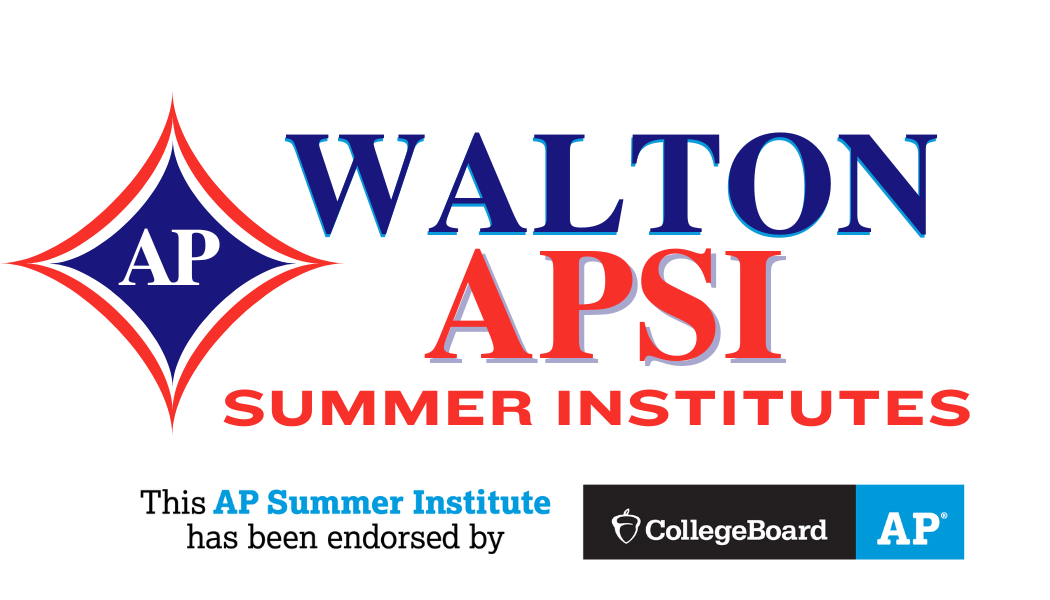This session with Randy Gingrich is offered ONLINE during Event 1: June 17-20 and again ONLINE in Event 2: June 23-26
Meet the College Board Endorsed Consultant for AP English Language and Composition, Randy Gingrich
 Randy S. Gingrich has been teaching English at all levels for 36 years. He has taught in Cincinnati Public Schools in Ohio and Gwinnett and Fulton Counties in Georgia.
Randy S. Gingrich has been teaching English at all levels for 36 years. He has taught in Cincinnati Public Schools in Ohio and Gwinnett and Fulton Counties in Georgia.
He currently teaches at the Innovation Academy Fulton STEM Magnet High School. He teaches AP English: Language and Composition, IA Honors Research in which students develop year-long pinnacle projects using either the Scientific Method or Design Thinking, and TAG seminars.
He has been teaching AP English: Language and Composition for 23 years. He works as a College Board AP Consultant and AP Mentor training teachers of AP Lang and Comp around the country. He has been a reader for 11 years at the AP reading and a table leader for 5 years.
He has presented frequently at NCTE, AERA, CCCC, GCTE, and GAGE. He has participated in numerous NEH and Gilder-Lehrman Summer Institutes for Teachers.
He received a BA in English and History from Michigan State University, an M.A. in Composition and Rhetoric from Miami University, and a Ph.D. in English Education from Ohio State University.
He currently resides in Forsyth County Georgia with his wife and daughter who is a college student.
Course Description
Participants will engage in a community of professionals with best practices in the teaching of AP English Language and Composition. They will learn methods to prepare students for all aspects of the AP exam, to provide meaningful scores and feedback for students on AP exam essay writing, to incorporate writing processes and technology to provide students with college level reading and writing experiences, to integrate AP English: Language and Composition course requirements with other state and local curricular requirements for particular English courses, to develop syllabi which meet the requirements of the AP English: Language and Composition course audit, and to provide an inclusive and equitable learning environment for a diverse community of learners.
Participants will be able to implement strategies to promote student success on the AP English: Language and Composition examination, score and provide students with appropriate feedback on practice free response essays, effectively engage students with the processes of college-level reading and writing, select ability and interest appropriate text books and supplemental materials for inclusion in curriculum, and design syllabi which meet the requirements of College Board course audit including approaches to meet the needs of a diverse range of student learners.
Course Agenda Overview
Monday
- Focal Topics: Overview of AP Classroom, Syllabi, Units and Structure, and Resources; Enduring Understanding: Rhetorical Situation; Scoring of Rhetorical Analysis; Method Simulation
- Morning Session One Synchronous (2 hours – 10-minute break half-way through)
- Morning Session Two Asynchronous (2 hours)
- Lunch (1 hour)
- Afternoon Session Three Synchronous (2 hours)
- Afternoon Session Four (30 minutes asynchronous / 30 minutes synchronous)
Tuesday
- Focal Topics: Enduring Understanding: Claims and Evidence (Sample Unit Animals in Captivity); Argument AP Exam; Multiple Choice; Reading Strategies; Selecting Texts; Debate
- Morning Session One Asynchronous (1.5 hours)
- Morning Session Two Synchronous (2 hours)
- Lunch (1 hour)
- Afternoon Session Three Asynchronous (1.5 hours)
- Afternoon Session Four Synchronous (2 hours)
Wednesday
- Focal Issues: Line of Reasoning (Sample Unit: Justice-Just Mercy by Bryan Stevenson); Multiple Choice Style; Synthesis Prompt; Socratic Seminar
- Morning Session One Asynchronous (1.5 hours)
- Morning Session Two Synchronous (2 hours)
- Lunch (1 hour)
- Afternoon Session Three Asynchronous (1 hour)
- Afternoon Session Four Synchronous (1.5 hours)
- Afternoon Session Five Asynchronous / Synchronous (1 hour)
Thursday
- Topics: Syllabi; Units; Technology; Formative vs. Summative Assessments; College Composition and Culminating Projects (Project Based Learning)
- Morning Session One Asynchronous (1.5 hours)
- Morning Session Two Synchronous Symposium (2 hours)
- Lunch (1 hour)
- Afternoon Session Three Asynchronous (1 hour)
- Afternoon Session Four Synchronous (2 hours)
- Afternoon Session Five Synchronous (30 minutes)
